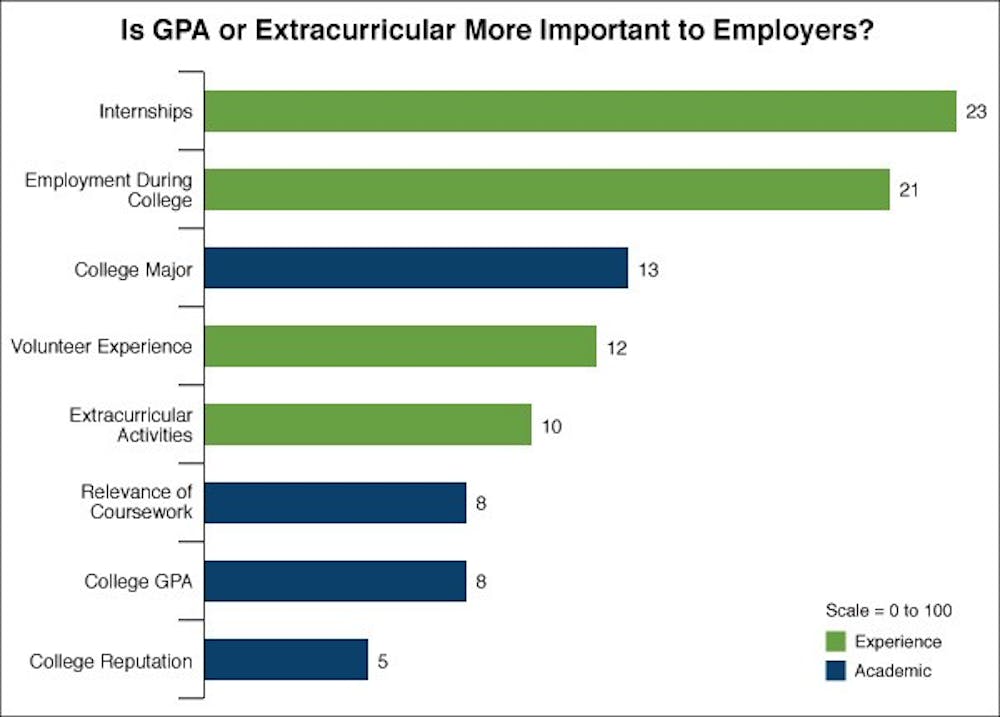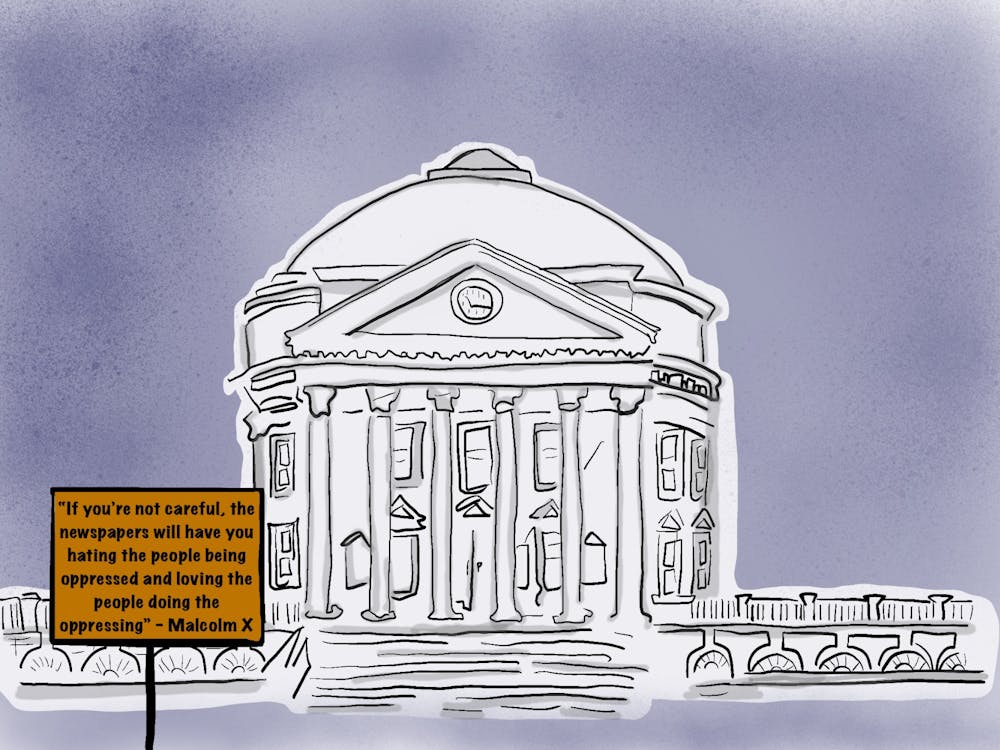There are multiple area requirements students need to complete before graduating from the University. These requirements are designed to improve the breadth and quality of education, making the student well-rounded and prepared for graduation. While the drawbacks of this system have been debated, one key piece is missing: real-world experience. If the University is committed to area requirements as a vital part of making students well-rounded and ready for the real world, there should be a requirement that students obtain some kind of volunteer, work or internship experience while enrolled at the University. While school and grades are very important, they are not more important than work experience. In fact, there is a convincing case to be made that work experience is more important than time in the classroom — and this ought to be reflected by the University’s requirements.
Ultimately, one of most important purposes of school is to prepare you to get a job. However, research suggests that school experience is not the main quality that employers look for when hiring. A survey from the Chronicle of Higher Education found that employers place more weight on school jobs and internships than educational experience. This finding remained constant across all industries and hiring levels. Jobs during school, volunteering and internships had no close competition in the minds of employers.
Not only does work experience appeal to employers, it provides students with valuable resources that cannot be gained in the classroom. It allows one to see what it is really like to work in a specific industry and to make meaningful connections there. Letters of recommendation are a great asset, and employers and supervisors can give eye-witness accounts of a student’s work ethic and skills from a professional perspective. GPA and major are helpful, but insufficient measures of one’s ability and knowledge. Also, many companies look to hire interns after they graduate, so in some cases an internship can lead directly to a job. As trite as it may sound, being out in the real world provides experience beyond anything the classroom can simulate. It allows one to apply what they learn in the classroom to an actual problem, not just an online problem set. It reinforces and expands skills that starting in the classroom, with the volunteer or work experience acting as the refiner’s fire.
It’s easy to see the importance of experience when looking at what are arguably some of the most difficult and important professions — health sciences. There’s a reason that nurses and doctors have hours of clinicals before graduating to their real work. It is only after one has extensive experience that they are deemed ready to begin their career. This is also true for many graduate programs, which love to see that applicants possess research experience. Research shows that students who participate in internships or cooperative programs are better prepared for graduate school and their eventual career than students from traditional educational programs.
This is not to say that schoolwork is unimportant, for it teaches applicable skills and builds important traits, like critical thinking and clear writing. GPA also matters, for better grades can be indicative of ability or work ethic. In some cases GPA is a prerequisite for applying, while it is the extracurricular work experience that will get you the interview. GPA enables you to fill out the law school application, but the experience volunteering at the public defender’s office can help you land the job you want.
If area requirements are really supposed to prepare students for school and professional life, they should cover the most helpful part of one’s education. It is common knowledge that you cannot learn everything in a classroom, and the University should recognize this fact in it’s area requirements. Implementing a general requirement that students have work experience of some kind — be it a part-time job, internship, externship, lab research or summer job — would be easy, simple and incredibly beneficial.
Connor Fitzpatrick is an Opinion columnist for The Cavalier Daily. He can be reached at opinion@cavalierdaily.com.





